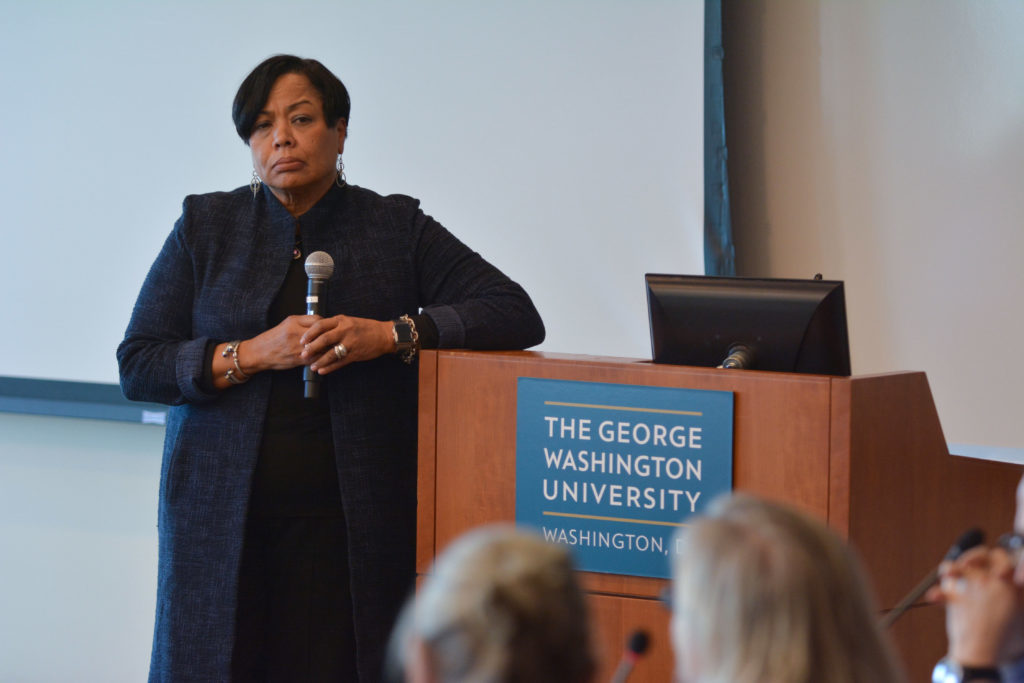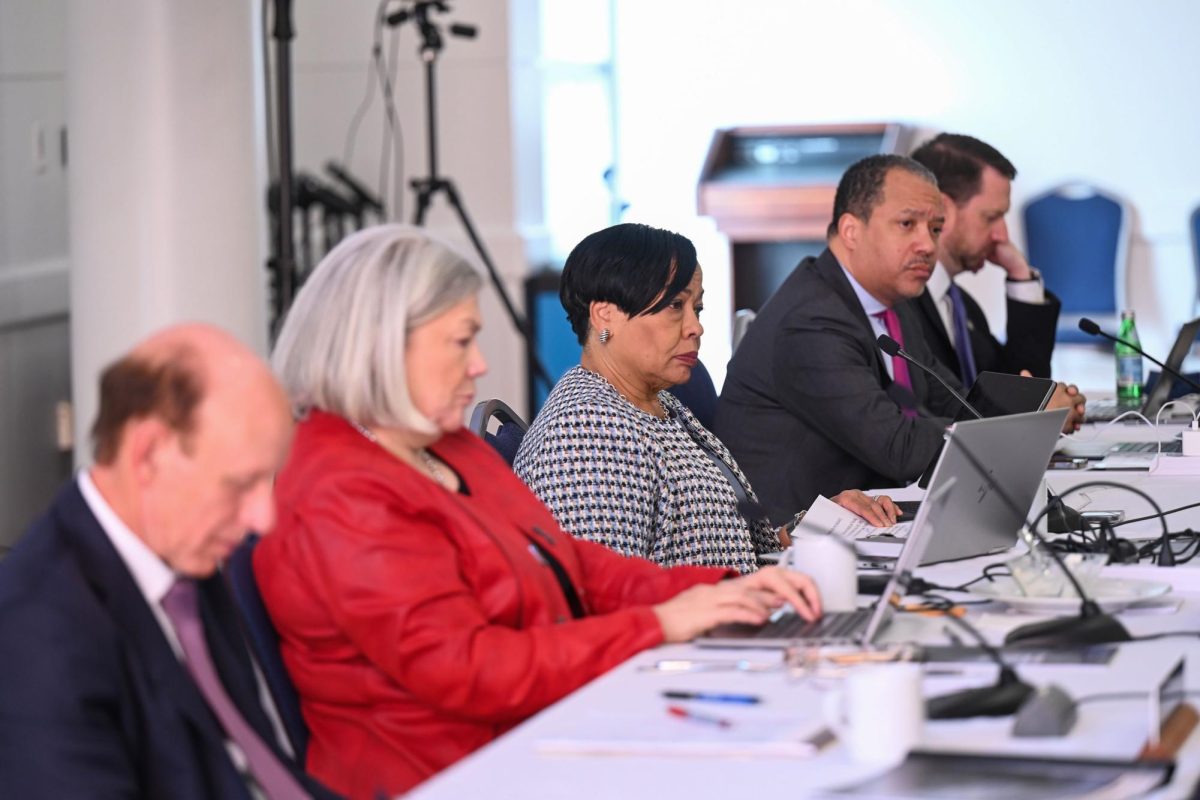The Board of Trustees’ task force on building naming policies will start crafting policy recommendations on addressing name change requests at the start of June, members said.
The Task Force on Naming, a 17-member committee the Board formed in November to draft recommendations to guide potential building name changes, hosted two town halls May 6 and 7 via WebEx to collect feedback on students’ opinions about the task force’s guiding principles. Mark Chichester, the task force’s chair, said members organized outreach initiatives like town halls in January as part of the yearslong effort to produce a set of policies the Board will use to address building name change requests if approved at a June 26 meeting.
Chichester said the town halls were meant to discuss the progress the task force had made with the community and clear up misconceptions of the charge Board Chair Grace Speights assigned to the group. He said the task force will use questions students asked, like how student requests will be weighed against those from a faculty member, to consider the procedures they recommend to the Board.
“I can say with some confidence that this will not be a process that is shrouded in secrecy,” Chichester said in an interview. “There will be a fair and reasonable way for members of the community to bring forth these concerns, which makes another point which is, we’ve got to get to a point where folks can have confidence that this exercise of this work has been a fact-based and fair one.”
Chichester said the task force’s values of emphasizing diversity in the community are closely aligned with the University’s values like collaboration and diversity. He said the members have hosted meetings with representatives from other universities who have changed their buildings’ names, student leaders and the Faculty Senate to gather their opinions on controversial building names before starting to draft their recommendations.
The controversial histories tied to buildings like Lisner Auditorium and the Marvin Center have sparked student pushes to rename the centers. The Marvin Center is named after former University President Cloyd Heck Marvin was a segregationist who doubled enrollment, tripled faculty size and increased the endowment eight times over.
“We don’t want to get to the end of a process and have there be any reason to question the fairness, the reasonableness of the process in terms of providing our people an opportunity to provide input,” Chichester said. “So between now and roughly the first of June, we’re going to begin framing the report.”
Speights formed the task force in November to recommend a set of policies for the Board to govern building naming, name change procedures and name change requests of buildings on campus by the end of the academic year. The group’s members include officials like Vice Provost for Diversity, Equity and Community Engagement Caroline Laguerre-Brown and University President Thomas LeBlanc, four trustees, an emeritus trustee, three students in leadership positions on campus, three faculty and two alumni.
Assistant Vice President for Board Relations Jonathan Post and Chichester moderated two town halls to answer community members’ questions on the task force’s charge earlier this month via WebEx, according to the Task Force website. Members of the task force said more than 100 students attended the town halls in total.
Chichester, a Board member, said at the town hall that the task force consists of historians, students and faculty determined to address the circumstances of “problematic” building names with respect to history and community concerns. He said the task force decided to continue meeting virtually once a month after officials announced classes would transition online for the semester because members saw their recommendations as an “action item” that could not be delayed.
“I think the sense of the task force was a way to figure out how to prepare for what could be a new normal,” Chichester said at the meeting. “And if we wait for these issues to subside, we could be waiting until there’s a vaccine 18, 24 months, who knows? So I think that the pretty strong sense of the task force was that we could and ought to forward.”
The task force will not consider specific requests for name changes but is working to create a broad framework the Board will apply in the future to building name change requests, according to the group’s website.
André Gonzales, a recent graduate and member of the task force, said the group has spent the past four months researching other universities like Stanford and Duke’s approaches to changing building names to integrate into the task force’s process.
“I think any conversation talking about the impacts of symbolism and ensuring that we have added representation within higher education is important to have no matter what,” Gonzales said. “The fact that we’re going to have that space, as a campus community, to talk about these issues and to have what might be an uncomfortable conversation for many of us, the fact that those spaces exist is really incredible.”
Gonzales – who had previously served as the Student Association senate pro tempore and chair of the Colonial Moniker Task Force, a five-student committee that researched names to replace the Colonial – said former SA President SJ Matthews asked him to join the task force in November. He said he was “passionate” about integrating community outreach into the task force’s mission so students will feel reassured their voice is heard by officials.
“It’s up to each and every one of us, even if it’s recent graduates like me or upcoming first-year students, to really hold our institution accountable but also to be willing participants in this campus community, to be engaging with our alumni, to be engaging with our trustees, with our administrators, to make sure that we’re all on the same page,” Gonzales said.
Owen Manning, a rising senior majoring in business administration and a member of the task force, said the task force marks the University’s push to address student issues like the Colonial moniker and Marvin Center’s name. He said although the group was not given a direct charge to address their names, the guidelines produced will best serve the community at large by addressing any future building names seen as “negatively impacting” students and brought to the Board.
“This is a really good step in the right direction by trying to overcome that battle and being able to say while we have had these things, these are the things that we’re putting in place in order to address the problem,” Manning said.








